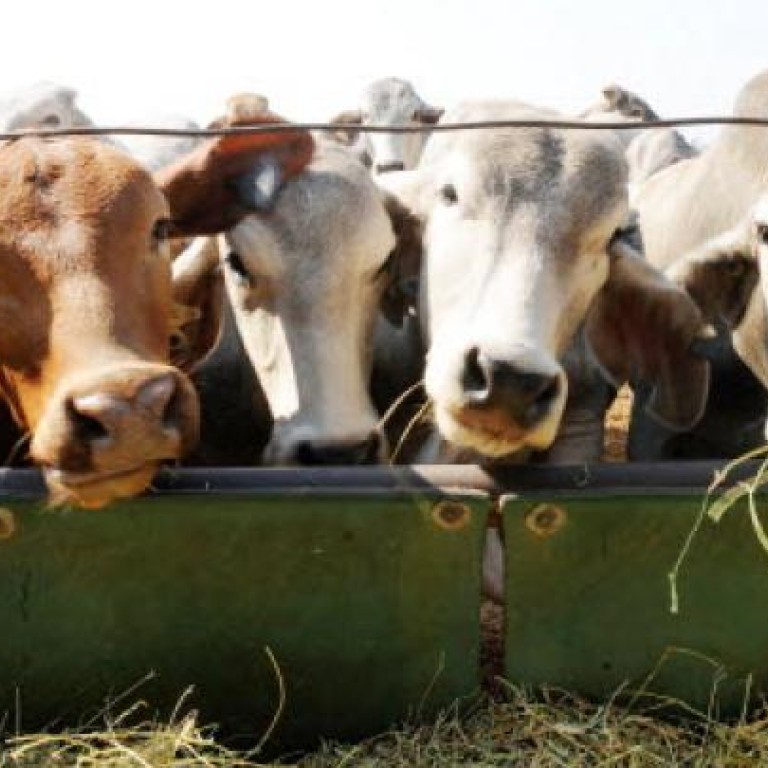
China firm aims to build sugar industry in Australia outback
A Chinese firm has won the right to develop a farm project in Western Australia, targeting a $728 million investment to build a sugar industry in the state, and marking the latest foreign deal aimed at securing agricultural resources in Australia.
Shanghai Zhongfu Group plans to invest up to A$700 million (US$728 million) in the next six years in the 52-sq-mile (13,400-hectare) area of the Ord East Kimberley region, the Western Australia state government said on Tuesday.
Zhongfu forecast the project could produce about 4 million tonnes annually of sugar cane, exporting 500,000 tonnes of raw sugar, or about 15 per cent of Australia’s estimated 2012/13 exports.
The move comes after a number of high-profile deals involving Chinese investors, including the purchase of the country’s biggest cotton farm, as well as foreign takeovers in its deregulated wheat industry.
However, foreign investment in agriculture has sparked a political backlash that some analysts fear could threaten the opportunity for Australia to tap the booming demand to accommodate Asia’s middle-class.
“This investment in large-scale agricultural industry and downstream processing will be the start of an exciting new era for the East Kimberley and northern Australia,” Western Australia premier Colin Barnett said in a statement.
Zhongfu, trading in Australia as Kimberley Agricultural Investment (KAI), is also proposing to build an A$425 million sugar mill in the area and could build a biofuel plant as well as upgrading port facilities in the area.
Despite local scepticism at the prospects for Australia’s farming sector, an increase in offshore interest comes at a time when returns have seldom been better and adds to other evidence suggesting the foreign investment may not be mistimed after all.
Helped by generous rains and strong global prices, Australian farmers may have enjoyed the best year in decades in 2011/12.
Australia is the driest inhabited continent, but it has plenty of water in the tropical and sub-tropical northern regions such as Kimberley, which are mostly underdeveloped.
The Kimberley project would open new tracts of farmland to irrigation from the waters of the Ord River and Lake Argyle, which hold enough water to fill 21 Sydney Harbours.
Zhongfu’s president Pui Ngai Wu said investment in a sugar mill and other infrastructure would depend on further negotiations with local governments and environmental approvals.
“Scale is important and will directly relate to the level of investment which KAI will make in infrastructure such as port upgrades,” Wu said in a statement.
The firm’s plans could also include building an ethanol plant, which could produce biofuel from sugar, the state government said.
The Kimberley project is the first investment in Australia by the Shanghai-based property company, which is still negotiating rent and will look to start clearing land from 2013.
Australia is the world’s third-biggest raw sugar exporter, with exports forecast to rise by nearly 12 per cent from last year to 3.4 million tonnes.
Global sugar consumption is expected to grow by 32 million tonnes by 2020, an increase of 2.2 per cent a year, driven by rising population and incomes, according to consultant Jonathan Kingsman.
China is the world’s second-largest sugar consumer after India, accounting for about 8 per cent of global output.
Whether for food or ethanol, Zhongfu should be able to profit from the sugar project, said Stephen Ryan, general manager of the Australian Cane Farmers Association.
“If you’ve got cheap rent, plenty of water, plenty of sunshine...there is every reason that it should succeed,” he said.
Most of Australia’s sugar industry is clustered on the east of the country and previous attempts in the west have faltered including the closure of a sugar mill operated by South Korea’s largest food maker CJ Cheiljedang.
Peter Robertson, campaign manger for environmental group, the Wilderness Society, said there were also risks hanging over this project.
“We think it will be unprofitable, and probably will only last for a couple of years, and then the investors, whoever they are, will pull out and say it is not viable,” he said.
